Guest Blog: R. J. Anderson
Past Watchful Dragons: Why One Christian Fantasy Author Chose To Write For The General Market
by R. J. Anderson
All the years I was growing up, my father served as a full-time Bible teacher and elder in the open Brethren assemblies. My father was, and is, a wonderful godly man with a great love of Scripture, and thanks to him I received an excellent Biblical education. But he also read to me from C.S. Lewis’s Narnia books and the tales of Tolkien’s Middle-Earth, and slipped copies of George MacDonald’s Curdie books and other works of Christian fantasy into my Christmas stocking. I loved them all, and plundered my local library for more. By the time I was a teenager, I had made up my mind to write, and Lord willing one day publish, a fantasy novel of my own.
Yet even though I’d read quite a bit of modern Christian fantasy—like John White’s Archives of Anthropos series and Stephen Lawhead’s Dragon King trilogy—and thought I might be able to get a Christian publisher if my work was good enough, something about the idea of writing books that would only be found in Christian bookstores, read by people who shared my core beliefs and principles already, didn’t sit right with me. And the more I thought about it, and even prayed about it, the more I felt that the CBA market was not the place for me.
Among other things, I took encouragement from C.S. Lewis’s writings about the creation of The Lion, The Witch and the Wardrobe, in which he confessed that there had been nothing obviously Christian about the ideas that first provoked him to write the book at all. It wasn’t until later that he began to reflect on how a well-written fantasy story by a Christian might not only entertain the reader but also appeal to his soul and conscience—stealing past the “watchful dragons” of cynicism and unbelief, and enabling him to appreciate Biblical truths in a new way.
Lewis went on to say in an essay about writing for children, “The only moral that is of any value is that which arises inevitably from the whole cast of the author’s mind.” That resonated strongly with me as well. I didn’t want to craft my stories to meet the expectations of one particular type of reader, or to fit a theological checklist. I wanted to write a story that could be read and enjoyed by a wider audience, including and especially those readers who did not already share my beliefs. And I believed it was possible to write stories that would reflect my convictions as a follower of Jesus Christ, and still be published in the general market. After all, I’d read plenty of general-market fantasy by people of other faiths whose beliefs came through pretty obviously, sometimes blatantly, in the course of telling their stories. If Susan Cooper could write at the end of her THE DARK IS RISING series, “You may not lie idly awaiting the second coming of anybody now, because the world is yours and it is up to you,” and if someone like Philip Pullman could pepper his books with blatantly atheist sentiments, then there was surely a need for authors of Christian faith to speak out as well.
I believed that a Christian author could—and should—tell powerful, relevant, engaging stories that even readers indifferent or hostile to Christianity could appreciate. I knew that even without sermonizing, books by Christian writers could have a positive influence on the minds and hearts of those who read them. After all, hadn’t George MacDonald’s Phantastes caused the agnostic C.S. Lewis to crave holiness, and eventually helped lead him to Christ?
So when I wrote the manuscript that became my debut novel, I told the best story I knew how to tell, without worrying overly about whether it would turn out to be “Christian” or not. I trusted, and prayed, that something spiritually meaningful would come out of it anyway. And when the book was done, I started querying publishers in the general market, looking for an editor who would accept it. It was a long road, but eventually my book sold in both the US (as Faery Rebels: Spell Hunter) and in the UK (by its original title Knife). And since then—particularly since the publication of the sequel Wayfarer a.k.a. Rebel, which addresses Christian faith in a much more explicit way—I’ve received a number of letters and reviews to assure me that the spiritual and moral aspects of my books are being noticed and appreciated, not only by Christian fantasy readers but by some non-Christian readers as well.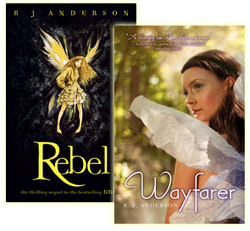
I don’t consider it my mission as an author to save people’s souls. I don’t believe I could do that even if I tried. That’s the work of the Holy Spirit, and He uses any number of people, situations, and influences to accomplish His purpose. My mission is to be a committed Christian writing the best fantasy stories I can write, out of the heart and spirit and wisdom that God has given me, and trust that somewhere along the way, He can and will use my writing—even if it’s just one book, or even one line—for His glory.
And that’s why I write for the general market.
– – –
Learn more about R. J. Anderson at
Tumblr
her Website
her Journal
Follow her on Twitter: @rj_anderson
Watch the KNIFE series trailer

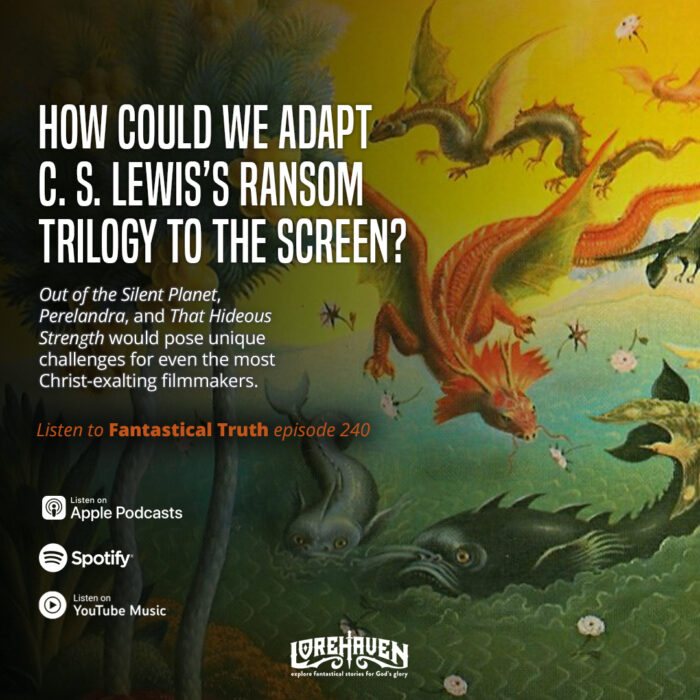
































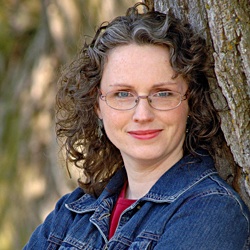


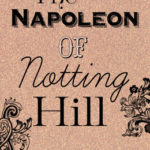

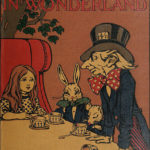




Great post, Rebecca. I love your mission statement at the end.
I’m so happy to see your books published in the general market. I especially love Knife and thought the spiritual pictures you put in her book were wonderful.
Just like the world needs all sorts of people, it also needs all sorts of writers. Each write to the audience one has been given (and sometimes that audience will surprise you, mine sure did :))
Lovely post. Thanks so much. I’ve been having that little internal wrestling match myself.
That was fantastic. Thanks for sharing such a needed perspective, and for reinforcing some of my own convictions about the matter. It’s hard not to doubt one’s choice of markets when so many people keep trying to sway an author back to one market or the other, regardless of one’s own convictions.
Thanks for the kind words, everyone — I’m glad you found my post interesting and/or encouraging.
I’m curious – did writing for the secular market influence what you could include in the books: did the editors want you to tone it down in places (or did you choose to do so yourself?)
I think this is a great idea, btw
Kirsty —
That’s an excellent question. I worried when I sold my first two books that my editor might ask me to tone down or remove any “religious” references, especially in the second book — but in fact, it was quite the opposite. She asked me directly to clarify whether the Great Gardener in whom the faeries believe was the same as the Christian God, or some other deity. So I actually ended up making a conversation between a faery and human character in the second book more explicit because of her editorial suggestion.
So far I have worked with three different editors and not one of them has told me to write in a less Christian way. I have, however, often run my books past non-Christian critique partners and asked them if certain scenes come across as “preachy” or not — if they do, then I try to find a different way to express what I want to say. Not to compromise the message, but to make sure that it has the best possible chance of being heard.
Wow! I must be too cynical!
I think what makes faith-based speculative fiction on the national market so appealing to me is that it is 1) inclusive and 2) in context. Often books published for a smaller, specifically religious audience, are more concerned with the religious points than with the story, and that sort of weakens the religious element, too. It’s like making things too easy for your protagonist because you’ve cleared the barriers away, when in real life, challenges don’t suddenly stop so you can get a pick-me-up on spirituality and faith. The faith happens AS everything else is going on.
Even more valuable to me, though, is the first bit, about being inclusive. Instead of feeling left out because I’m not part of the author’s specific brand of Christianity, I feel brought into the fold and a part of God’s family. I’d rather feel like Christ wants us to in John 17:11 (ie that we are all one in love and agreement, just as Christ and His Father are) than argue about who is “more” Christian, the ones who use two or three fingers to cross themselves. Or whatever. And if you aren’t particularly religious, well, I can imagine you’d feel all the more welcome.
Like Sally, I love your mission statement at the end.
Thanks, R.J. both for the link to this site, and for this lovely post. (And quite timely!)
This is a wonderful perspective. Your reading history sounds identical to mine (including that my father was the one who introduced me to fantasy) and I was also pretty determined at a young age that, if I ever sell a novel, I want it to be to the general market. That line about not awaiting anyone’s second coming in Cooper’s books was always a sour note in what was otherwise a lovely symphony to me, and Charles de Lint, while a fantastic writer whom I’ve followed avidly, often gets my back up with his references to Christians being judgmental or hypocritical.
We are, of course, both. But we don’t have a corner on that market, and we’re a lot of other things besides judgmental and hypocritical. And I’ve never felt like Christian characters get much genuine portrayal in the general market.
I don’t want to write Christian fantasy stories. I want to write fantasy stories that include genuine Christian characters. I want to write amazing things happening to people who love Christ.
I was entranced by the Great Gardener in your books, and the more overt faith in the second book, with the Brethren characters, was wonderful. I definitely look forward to more of your books, and I’m incredibly happy God has blessed your mission so strongly. 🙂
I did my usual lazy thing and checked the library for these titles. Usually I am successful in not finding them, so me to-read list doesn’t grow. But they seem to have all 4 of your titles: Knife, Rebel, Spell Hunter, Wayfarer. I think that might be a statement about Australia. They all seem to be on loan at present. I intend to have a closer comparison of the covers.
Some years ago I had staying at our place the art director of Crossway Books. She told me that the Lawhead set she was working on required a totally different kind of cover for the UK and the US market. Ever since I’ve kept an eye on dual publications to see how this works. The covers for these 4 books seem to be very revealing. I hope to get a closer look at them.
I find your comments to be very interesting. I have only written one succesful NaNoWriMo this year, and several short stories for my kids. I also write poetry. I believe that writing only overt and obvious Christian themes would be dishonest for me. I write as I go, and if I published, I’d want to publish as I go also. I believe we have liberty as Christians to do so. Should a man who puts tips on make up brushes be expected to share the Christian gospel in every tip? No. But He should work as if he’s working to Christ. That is so much more honest, making an attempt to work as if you are working for Christ rather than forcing Him into your story.
[…] Speculative Faith Guest Blog: Past Watchful Dragons: Why One Christian Fantasy Author Chose To Writ… […]
[…] Speculative Faith Guest Blog: Past Watchful Dragons: Why One Christian Fantasy Author Chose To Writ… […]
I read the first of Anderson’s books, and expect to read the second soon. She has done a fine job of writing, and of making her works available to the market at large.
[…] Speculative Faith Guest Blog: Past Watchful Dragons: Why One Christian Fantasy Author Chose To Writ… […]